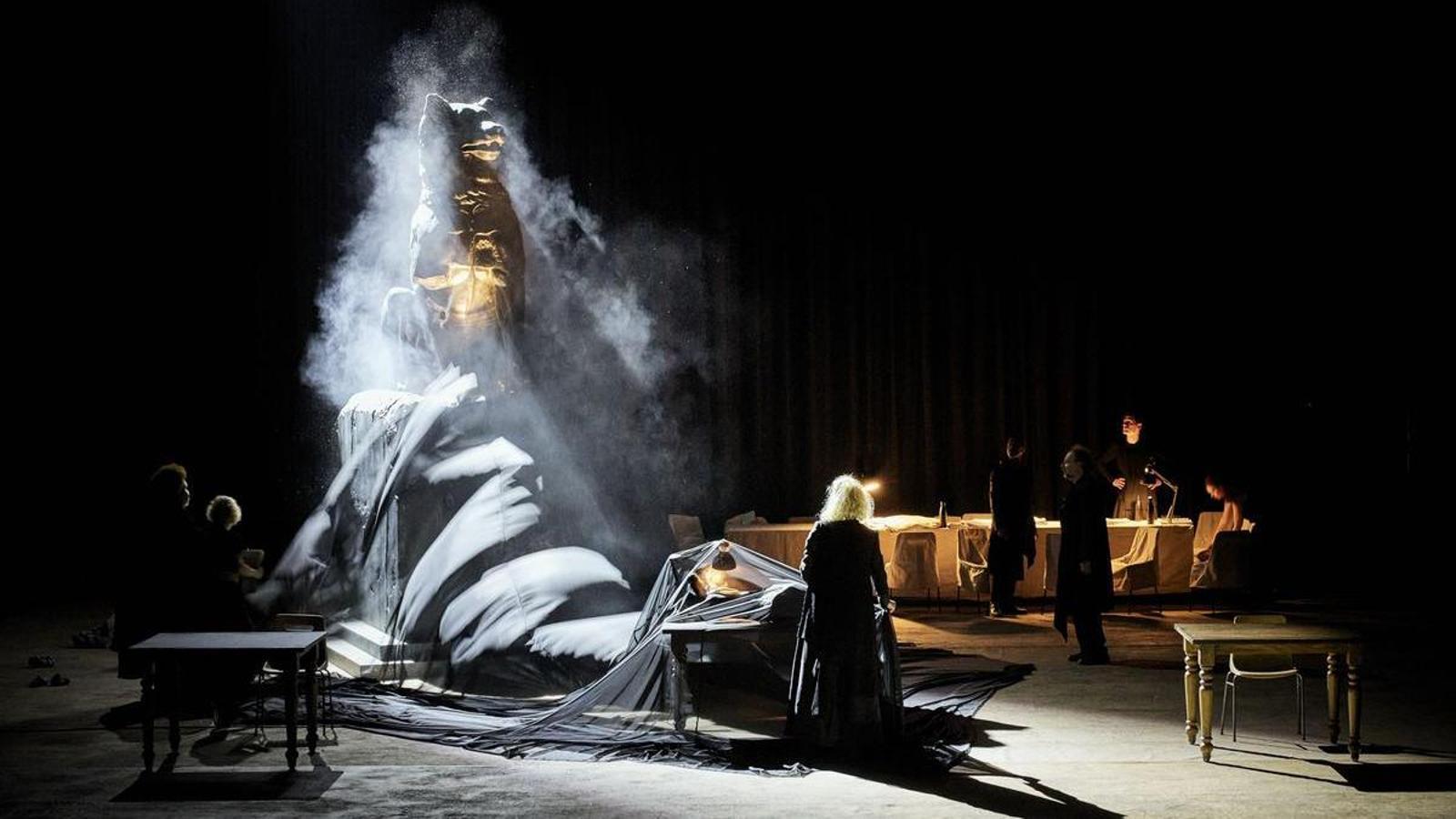The pain of mothers for the betrayal of power
Tiago Rodrigues directs a magnificent 'Hécube, paso Hécube' at the Teatre Grec.

- Text and direction: Tiago Rodrigues
- Performers: Éric Génovèse, Denis Podalydès, Elsa Lepoivre, Loïc Corbery, Gaël Kamilindi, Élissa Alloula and Séphora Pondi
The Grec 2025 Festival was the Grec of mothers. Mothers were the protagonists, like the Moeder Courage by Belgian Lisaboa Houbrechts, the Medea by Milo Rau, the Mommy by the Albanian Mario Banushi, Helena Tornero's ghost mother in You promised me a love story and finally, the Hecuba by the current director of the Avignon Festival, Tiago Rodrigues, which closed the Teatre Grec de Montjuïc programme on Tuesday in a highly applauded performance, but which also saw quite a few spectators leave.
A Hecube, not Hecube There are two mothers. One is the Queen of Troy, Priam's second wife and Agamemnon's slave after the fall of the city. Hecuba mourns the death of the young son she had wanted to protect from the war and who, out of greed, murdered his intended caregiver, the King of the Thracians. The other mother is Nadia Roger. Her autistic son, Otis, was the victim of abuse and humiliation at the public center where he was supposed to be protected. Nadia reported the incident to the prosecutor's office, which opened an investigation. Nadia wants justice.
Two times and two betrayed trusts. Two crimes from which they were supposed to protect the most vulnerable and failed to do so. Two characters and a single great actress (Elsa Lepoivre) in an ingenious theatrical play.
Tiago Rodrigues skillfully connects the pain of the two mothers, alternating between Euripides' text and the judicial investigation into the mistreatment of Otis (Denis Podalydès's fantastic prosecutor) in a theater-within-a-theater performance that begins with a peculiar rehearsal tone Rodrigues sneaks in about things from the theater and even from the production itself, lending freshness and truth to the scene. The large statue of a dog, hidden for a good part of the performance, dominates the stage and has to do with Euripides, but above all with Otis's fixation with the film about a helpless dog, giving rise to three stark and emotional monologues with a happy ending. Like the dog who has found the puppy, Nadia barks. Bravo!
